 |
Bay to Ocean Writers Conference 2023
Session Descriptions
Fiction & Poetry |
Fiction 9:00AM – 9:50AM Writing
a novel that will capture the attention of readers (and agents) is
incredibly hard for many aspiring authors, but there is a ‘secret story
sauce’ that can help you navigate the dark (often unmarked) highways and
byways of the writing and editing process. In this workshop, I will
teach you the two key steps necessary to create a novel that will turn
casual readers into super-fans!
10:00AM – 10:50AM The session will focus on the importance of seeing the characters that you create as fully human, and propose that writing them through empathetic eyes will make them realer to you, thereby making them fully-breathed folk to your readers (even your villains!). Participants will discuss characters from other work that they felt empathetic towards, those that they didn’t, and talk about possible reasons why. We will also use writing prompts to guide us towards writing with an empathetic eye.
11:00AM – 11:50AM We love unreliable narrators like Amy Dunne from Gillian Flynn’s Gone Girl, but we rarely talk about how such narrators are written and what makes those characters so memorable. Luckily, this is a technique that can be traced back to the earliest forms of Greek literature such as Homer’s epic poem "The Odyssey" and can be utilized regardless of genre. So this session will answer the other big questions about this approach to viewpoint: What’s the best way to incorporate an unreliable narrator? What are the benefits/pitfalls of the technique? How do we make our unreliable narrator empathetic enough that readers stay until the end? And most importantly, how can writers reveal their unreliable narrator without angering the audience? 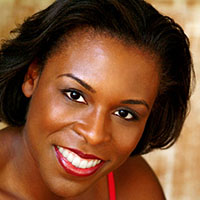 ANDREA J. JOHNSON is
the author of the Victoria Justice mystery series about a trial
stenographer turned amateur sleuth (think Murder, She Wrote meets The
Pelican Brief). She’s also written several guidebooks for writer
productivity, including How to Craft a Killer Cozy Mystery and Mastering
the Art of Suspense. She holds a B.A. in English from Swarthmore
College, an M.F.A. in Writing Popular Fiction from Seton Hill
University, and a copyediting certification from UC San Diego. She
currently teaches Creative Writing and African American literature at
the University of Maryland Eastern Shore, and her craft essays have
appeared on several websites such as CrimeReads, Litreactor, DIY MFA,
Submittable, and Funds for Writers. She also contributes to the women’s
lifestyle websites Popsugar and The List Daily. Visit Andrea’s blog at
ajthenovelist.com to learn more. ANDREA J. JOHNSON is
the author of the Victoria Justice mystery series about a trial
stenographer turned amateur sleuth (think Murder, She Wrote meets The
Pelican Brief). She’s also written several guidebooks for writer
productivity, including How to Craft a Killer Cozy Mystery and Mastering
the Art of Suspense. She holds a B.A. in English from Swarthmore
College, an M.F.A. in Writing Popular Fiction from Seton Hill
University, and a copyediting certification from UC San Diego. She
currently teaches Creative Writing and African American literature at
the University of Maryland Eastern Shore, and her craft essays have
appeared on several websites such as CrimeReads, Litreactor, DIY MFA,
Submittable, and Funds for Writers. She also contributes to the women’s
lifestyle websites Popsugar and The List Daily. Visit Andrea’s blog at
ajthenovelist.com to learn more.
For a work of fiction to be worth reading, it must be real. It must ring true. It must be authentic. Even science fiction and fantasy need to contain elements of reality in the human condition and experience. How can you best incorporate these elements into your writing? By writing what you know. Research is a big part of writing, but knowledge and experience are crucial for your writing to have an enjoyable and memorable impact on readers. We’ll discuss turning your own knowledge and experience into unforgettable stories people will be clamoring to get their hands on.
2:30PM – 3:30PM Whoever (or whatever) your antagonist is, they should never be boring—your antagonist is what drives the story! Explore some of your favorite villains in storytelling—from the love-to-hate-ems to the morally gray ones—and see what makes them such interesting characters, so you can create your own who can stand in your hero’s way.
. | Poetry
The line is the one thing that differentiates poetry from prose and yet so many poets don't consider the line as a thing unto itself; much is made about line breaks but the break doesn't only determine where one line ends, but also defines where the next one begins, and as such is the very essence of poetic craft.
10:00AM – 10:50AM In this writing workshop, we’ll use sensory stimuli to summon what the French novelist Marcel Proust called “involuntary memories” which may be the start of fresh, new writing. In my long career leading creative writing workshops with students in grade school, universities, and senior citizen centers, I have used this exercise with great success; perhaps because the ever-judgmental mind is disabled and the limbic system is engaged, the writing produced is always authentic, vibrant, and powerfully palpable.
11:00AM – 11:50AM Maybe because we’re bilaterally symmetrical, human people tend to think in binaries and dichotomies. We love to divide things up, especially into multiples of two, and then privilege one of them—like the deep divide that’s so often assumed between human and nonhuman life. This interactive presentation dips into a scattering of poems focused on the specific, the nonhuman, and the places where human and nonhuman intersect—a loose taxonomy of the approaches that get lumped together as “nature poetry”, from meditations to elegies, histories, celebrations, and wild leaps of imagination–to name just a few. This will provide a springboard for participants to work on their own such poems during the session, and, if they wish, to share some. Handouts provided.
1:30PM – 2:20PM In this workshop, we will explore several approaches to title a poem, or story, including the approaches of location, character, preview, theme, and/or slant, with examples from poets Chen Chen, Jericho Brown, Maggie Smith, and other leading lights to get our juices jazzed. After discussion, there will be a generative portion, so please bring a draft poem with which to play. Though focusing on poems, this can work for stories and nonfiction too.
2:30PM – 3:30PM In this generative workshop, participants will look at model poems, then have time to write their own syllabic verse. There are two types of syllabics: normative—in which all lines in the poem have the same number of syllables, and quantitative—in which each line of a stanza contains the same number of syllables as its corresponding line in subsequent stanzas. Syllabic prosody is the foundation of most poetry written in Japanese, and is found also in Romance languages, but it is relatively rare in English. We'll look at examples by Marianne Moore, Sonia Sanchez, Harryette Mullen, N. Scott Momaday and others for inspiration.
|
More Session Descriptions |
Questions? |
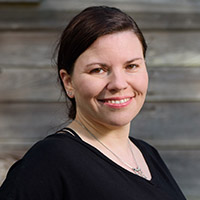 DR. HEATHER DAVIS
is an Author Accelerator certified book coach, developmental editor,
author platform expert, and the founder of The Kreative Authorpreneur.
She helps aspiring authors create emotionally complex novels that
readers rave about and agents request. Heather has studied under story
experts Lisa Cron and Jennie Nash. She is a frequent contributor to Jane
Friedman’s popular writing blog and has been featured on podcasts
such as Editing Writing, Turning Readers into Writers, and Write About
Now. In the fall of 2022, Heather is slated as guest speaker inside the
wildly popular Women In Publishing (WIP) School.
DR. HEATHER DAVIS
is an Author Accelerator certified book coach, developmental editor,
author platform expert, and the founder of The Kreative Authorpreneur.
She helps aspiring authors create emotionally complex novels that
readers rave about and agents request. Heather has studied under story
experts Lisa Cron and Jennie Nash. She is a frequent contributor to Jane
Friedman’s popular writing blog and has been featured on podcasts
such as Editing Writing, Turning Readers into Writers, and Write About
Now. In the fall of 2022, Heather is slated as guest speaker inside the
wildly popular Women In Publishing (WIP) School.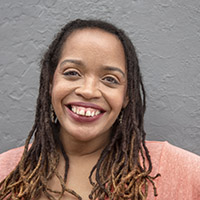 LYNN STREETER CHILDRESS is a playwright, actor, teaching artist, director, and founder and artistic director of Building Better People Productions, a professional theater company based in Annapolis, MD, that does shows for young audiences based in themes of kindness and respect. This is her 28th year in professional theater, with much of that experience in theater for young audiences. She has penned commissioned work, as well as pieces for her own theater. Lynne had the honor of speaking at BTO in 2021 and 2022. Lynne lives in Annapolis, MD with her husband and son.
LYNN STREETER CHILDRESS is a playwright, actor, teaching artist, director, and founder and artistic director of Building Better People Productions, a professional theater company based in Annapolis, MD, that does shows for young audiences based in themes of kindness and respect. This is her 28th year in professional theater, with much of that experience in theater for young audiences. She has penned commissioned work, as well as pieces for her own theater. Lynne had the honor of speaking at BTO in 2021 and 2022. Lynne lives in Annapolis, MD with her husband and son.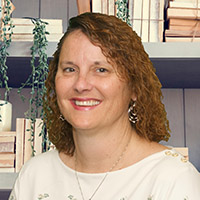 AMY SCHISLER,
author of inspirational fiction, has published numerous books,
including the award-winning Chincoteague Island Trilogy. A former
librarian, Amy enjoys a busy life on the Shore where she volunteers at
her Church and runs a Girl Scout Camp every summer. Amy and husband,
Ken, are enjoying their new role as grandparents.
AMY SCHISLER,
author of inspirational fiction, has published numerous books,
including the award-winning Chincoteague Island Trilogy. A former
librarian, Amy enjoys a busy life on the Shore where she volunteers at
her Church and runs a Girl Scout Camp every summer. Amy and husband,
Ken, are enjoying their new role as grandparents.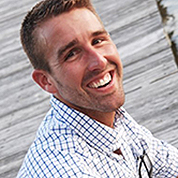 DYLAN ROCHE is a novelist, playwright, journalist, copywriter, blogger,
editor, and creative writing coach with years of professional experience
in a breadth of writing-related endeavors. Whether he’s writing
magazine features about fitness and nutrition, farcical sitcoms for the
stage, or ad copy for small businesses, he loves connecting with and
resonating with readers. His first novel, The Purple Bird,
a YA fantasy adventure, debuted in 2019. He lives in Annapolis with his
dog, Tyrion the corgi, and when he’s not writing, he can usually be
found going on long-distance runs. Visit him online at
DYLAN ROCHE is a novelist, playwright, journalist, copywriter, blogger,
editor, and creative writing coach with years of professional experience
in a breadth of writing-related endeavors. Whether he’s writing
magazine features about fitness and nutrition, farcical sitcoms for the
stage, or ad copy for small businesses, he loves connecting with and
resonating with readers. His first novel, The Purple Bird,
a YA fantasy adventure, debuted in 2019. He lives in Annapolis with his
dog, Tyrion the corgi, and when he’s not writing, he can usually be
found going on long-distance runs. Visit him online at 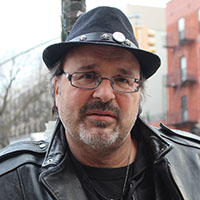 GERRY LAFEMINA's most recent books are The Pursuit: a Meditation on Happiness (CNF, 2022) and Baby Steps in Doomsday Prepping (prose poems, 2020) both from Madville Publishing. A new book of poems, After the War for Independence, will be released in 2023 from Stephen F Austin University Press. A Fulbright Specialist in Writing and American Culture, LaFemina teaches at Frostburg State University and in the MFA program at Carlow University. He is also the principal songwriter and frontman for The Downstrokes.
GERRY LAFEMINA's most recent books are The Pursuit: a Meditation on Happiness (CNF, 2022) and Baby Steps in Doomsday Prepping (prose poems, 2020) both from Madville Publishing. A new book of poems, After the War for Independence, will be released in 2023 from Stephen F Austin University Press. A Fulbright Specialist in Writing and American Culture, LaFemina teaches at Frostburg State University and in the MFA program at Carlow University. He is also the principal songwriter and frontman for The Downstrokes.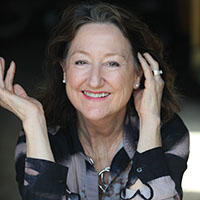 NANCY MITCHELL is the author of The Near Surround, Grief Hut, and The Out-of-Body Shop, and co-editor of Plume Interviews I. A recipient of a Pushcart Prize, her poems have appeared in such journals as Agni, Green Mountains Review, Ploughshares, and Washington Square Review. She has taught in the English and Environmental Studies Departments at Salisbury University, Maryland, and is an Associate Editor for Plume Poetry Journal. She hosts the Zoom Reading Series Poets on the Plaza and serves as the Poet Laureate of the City of Salisbury, Maryland.
NANCY MITCHELL is the author of The Near Surround, Grief Hut, and The Out-of-Body Shop, and co-editor of Plume Interviews I. A recipient of a Pushcart Prize, her poems have appeared in such journals as Agni, Green Mountains Review, Ploughshares, and Washington Square Review. She has taught in the English and Environmental Studies Departments at Salisbury University, Maryland, and is an Associate Editor for Plume Poetry Journal. She hosts the Zoom Reading Series Poets on the Plaza and serves as the Poet Laureate of the City of Salisbury, Maryland.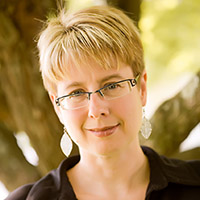 CATHERINE CARTER’s poetry collections include Larvae of the Nearest Stars, The Swamp Monster at home, The Memory of Gills, and Marks of the Witch. Her work has also appeared in Best American Poetry, Orion, Poetry, Ecotone, and North American Review, among others. Catherine was raised in Greensboro, Maryland, where her parents still live. Now she lives in Cullowhee, North Carolina, and is a professor of English at Western Carolina University.
CATHERINE CARTER’s poetry collections include Larvae of the Nearest Stars, The Swamp Monster at home, The Memory of Gills, and Marks of the Witch. Her work has also appeared in Best American Poetry, Orion, Poetry, Ecotone, and North American Review, among others. Catherine was raised in Greensboro, Maryland, where her parents still live. Now she lives in Cullowhee, North Carolina, and is a professor of English at Western Carolina University. 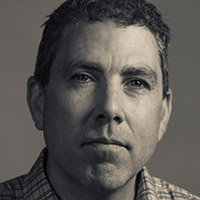 G. H. MOSSON is the author of two books and three chapbooks of poetry, including: Family Snapshot as a Poem in Time (Finishing Line Press 2019) and co-author of the collaborative Simultaneous Revolutions (PM Press 2021). His poetry has appeared in the Little Patuxent Review, The Potomac Review, Loch Raven Review, Tampa Review, Smartish Pace, and The Hollins Critic, among other places. For more, seek www.ghmosson.com
G. H. MOSSON is the author of two books and three chapbooks of poetry, including: Family Snapshot as a Poem in Time (Finishing Line Press 2019) and co-author of the collaborative Simultaneous Revolutions (PM Press 2021). His poetry has appeared in the Little Patuxent Review, The Potomac Review, Loch Raven Review, Tampa Review, Smartish Pace, and The Hollins Critic, among other places. For more, seek www.ghmosson.com 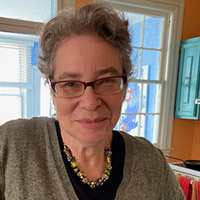 KIM ROBERTS is the editor of the anthology By Broad Potomac’s Shore: Great Poems from the Early Days of our Nation’ Capital (University of Virginia Press, 2020), selected by the East Coast Centers for the Book for the 2021 Route 1 Reads program as the book that “best illuminates important aspects” of the culture of Washington, DC. She is the author of A Literary Guide to Washington, DC: Walking in the Footsteps of American Writers from Francis Scott Key to Zora Neale Hurston (University of Virginia Press, 2018), and five books of poems, most recently The Scientific Method (WordTech Editions, 2017). Her chapbook, Corona/Crown, a cross-disciplinary collaboration with photographer Robert Revere, is forthcoming from WordTech Editions in 2023.
KIM ROBERTS is the editor of the anthology By Broad Potomac’s Shore: Great Poems from the Early Days of our Nation’ Capital (University of Virginia Press, 2020), selected by the East Coast Centers for the Book for the 2021 Route 1 Reads program as the book that “best illuminates important aspects” of the culture of Washington, DC. She is the author of A Literary Guide to Washington, DC: Walking in the Footsteps of American Writers from Francis Scott Key to Zora Neale Hurston (University of Virginia Press, 2018), and five books of poems, most recently The Scientific Method (WordTech Editions, 2017). Her chapbook, Corona/Crown, a cross-disciplinary collaboration with photographer Robert Revere, is forthcoming from WordTech Editions in 2023. 
